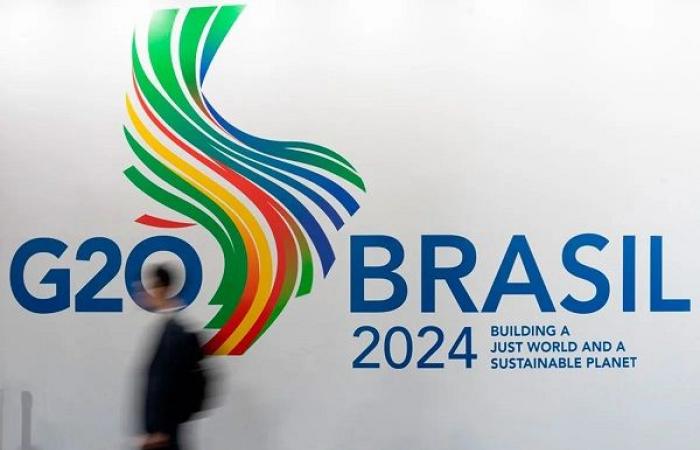President Luiz Inácio Lula da Silva will host this 19th summit, under the theme “Building a just world and a sustainable planet”. Among the distinguished guests, the American presidents Joe Biden, Chinese Xi Jinping, French Emmanuel Macron and Turkish Recep Tayyip Erdogan. Russian President Vladimir Putin, who had already missed the last editions, will still be absent.
In addition to the 19 major world economies, the European Union and the African Union, 56 delegations from countries and international organizations will participate in this summit.
Three plenary sessions will address each of the priorities set by the Brazilian presidency: the fight against hunger, poverty and inequalities; sustainability, climate change and just transition; as well as global governance reform, according to Mauricio Lyrio, secretary for economic and financial affairs at the Ministry of Foreign Affairs. The summit will also address the issue of taxation of the ultra-rich.
During the first session Monday morning, Lula plans to launch a “Global Alliance against Hunger and Poverty”, a flagship initiative of this presidency aimed at mobilizing resources and strengthening global efforts to eradicate hunger by 2030.
The Brazilian president will thus unveil the list of countries and organizations that have joined this alliance, intended to lift 500 million people out of poverty through money transfers and social protection systems.
Then, it will be about the reform of global governance, with a debate on the overhaul of international institutions, such as the UN, the World Bank, the International Monetary Fund and the World Trade Organization, all judged to be out of step with the needs of the contemporary world.
Sustainable development and the energy transition will be at the center of discussions on Tuesday, before giving way to bilateral meetings.
On Saturday, Lula received the support of UN Secretary General Antonio Guterres, also present for the G20 summit, during a meeting in Rio.
This summit coincides with COP29, which is being held in Baku, Azerbaijan, while the world continues to bear the brunt of the consequences of climate crises, more particularly Brazil, between floods, drought and forest fires.
As a prelude to the Leaders’ Summit, the G20 Social brought together tens of thousands of members of civil society. Announced by Lula when he took over the presidency at the end of 2023, this unprecedented initiative intends to enrich global discussions with proposals that will be transmitted to heads of state.
“This is a historic moment (…). Here, the collective will and the quest for a more democratic, fairer and more diverse world are expressed,” declared the Brazilian president, who returned to power last year after two first terms (2003-2010), at the closing of the G20 Social Summit.
“Your ongoing mobilization will be crucial to boost the work of the Global Alliance Against Hunger and Poverty and advance taxation of the super-rich; to triple the use of renewable energies and anticipate the carbon neutrality objective; and to continue our Call to Action for global governance reform, ensuring more representative multilateral institutions,” he said.
The final declaration expected from the heads of state will also carry a strong message in favor of peace, calling for a resolution of conflicts including in Ukraine and the Middle East.
“The leaders’ declaration is crucial, as it confirms the results of the Brazilian presidency while broadening their scope. But unlike previous presidencies, Brazil’s has already produced many results and decisions throughout the year,” said Mr. Lyrio.
Brazil will pass the torch of the rotating presidency of the G20 to South Africa, marking the end of a dense program of more than a hundred official meetings, including the leaders’ summit, around twenty ministerial meetings, and more than 50 meetings of senior officials, in addition to dozens of side events across the country.
The G20, which brings together 19 countries (Germany, Saudi Arabia, Argentina, Australia, South Africa, Brazil, Canada, China, South Korea, United States, France, Indonesia, Italy, Japan, Mexico, United Kingdom, Russia , Turkey) as well as the European Union and the African Union, represents two-thirds of the world’s population, approximately 85% of global GDP and 75% of international trade.






